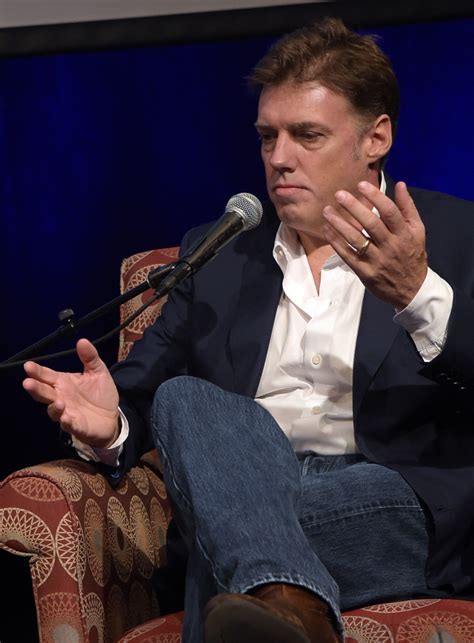A Quote by Henry Miller
Her fluency was marvelous. She would say things at random, intricate, flamelike, or slide off into a parenthetical limbo peppered with fireworks-- admirable linguistic feats which a practiced writer might struggle for hours to achieve.
Related Quotes
It seemed to Alabama that, reaching her goal, she would drive the devils that had driven her - that, in proving herself, she would achieve that peace which she imagined went only in surety of one’s self - that she would be able, through the medium of the dance, to command her emotions, to summon love or pity or happiness at will, having provided a channel through which they might flow. She drove herself mercilessly, and the summer dragged on.
She yearned to see her mother again, and Robb and Bran and Rickon… but it was Jon Snow she thought of most. She wished somehow they could come to the Wall before Winterfell, so Jon might muss up her hair and call her “little sister.” She’d tell him, “I missed you,” and he’d say it too at the very same moment, the way they always used to say things together. She would have liked that. She would have liked that better than anything.
My privileged upbringing and education and linguistic fluency gave me such proximity to whiteness that it stung all the more to still find myself outside of it. My mother, on the other hand, not only accepted that she would always be an outsider in this country but also believed it to be a finer fate and home than any other she could have had.
When he held her that way, she felt so happy that it disturbed her. After he left, it would take her hours to fall asleep, and then when she woke up she would feel another onrush of agitated happiness, which was a lot like panic. She wished she could grab the happiness and mash it into a ball and hoard it and gloat over it, but she couldn't. It just ran around all over the place, disrupting everything.
So firm did Nivea's determination become that she wrote in her diary that she would give up marriage in order to devote herself completely to the struggle for women's suffrage. She was not aware that such a sacrifice would not be necessary, and that she would marry a man for love who would back her up in her political goals.
I'm looking for a writer who doesn't know where the sentence is leading her; a writer who starts with her obsessions and whose heart is bursting with love, a writer sly enough to give the slip to her secret police, the ones who know her so well, the ones with the power to accuse and condemn in the blink of an eye. It's all right that she doesn't know what she's thinking until she writes it, as if the words already exist somewhere and draw her to them. She may not know how she got there, but she knows when she's arrived.
[Grandfather] would manufacture funnies with Grandmother before she died about how he was in love with other women who were not her. She knew it was only funnies because she would laugh in volumes. 'Anna,' he would say, 'I am going to marry that one with the pink hat.' And she would say, 'To whom are you going to marry her?' And he would say, 'To me.' I would laugh very much in the back seat, and she would say to him, 'But you are no priest.' And he would say, 'I am today.' And she would say, 'Today you believe in God?' And he would say, 'Today I believe in love.
I think her Grandmother Hall gave her a great sense of family love, and reassurance. Her grandmother did love her, like her father, unconditionally. And despite the order and the discipline - and home at certain hours and out at certain hours and reading at certain hours - there was a surprising amount of freedom. Eleanor Roosevelt talks about how the happiest moments of her days were when she would take a book out of the library, which wasn't censored.
She sat leaning back in her chair, looking ahead, knowing that he was as aware of her as she was of him. She found pleasure in the special self-consciousness it gave her. When she crossed her legs, when she leaned on her arm against the window sill, when she brushed her hair off her forehead - every movement of her body was underscored by a feeling the unadmitted words for which were: Is he seeing it?
Be it 'Jhalak,' 'Dance India Dance' or 'Nach Baliye,' I give all the credit to Ekta Kapoor as, just because of her, I am here. She has an eye to identify the real talent. Instead, I would say she knows how to make things work for her. She is not simply called the queen of Indian Television: she is the tigress of TV, I would say.
Where woman has taken her place in business she has found her method ready-shaped for her, and following that, she does her work,if with a certain amount of monotony, yet without undue fatigue. Her hours are fixed, and as a rule she gets needful change of scene as she goes to her business and returns to her home or the place where she lives. But the "home- maker" has not, nor can she have, any such change, and her hours are always from the rising of the sun beyond the going down of the same.
She did get put through the system with a lot of the hit songwriters, who were great songwriters, but it was more like 'This is how it's done here. It turned her off - not specific people, but the whole system turned her off. And she wanted to do something, I think, that she could play for her friends in Texas and they would say, Okay, well you're still Miranda.





































